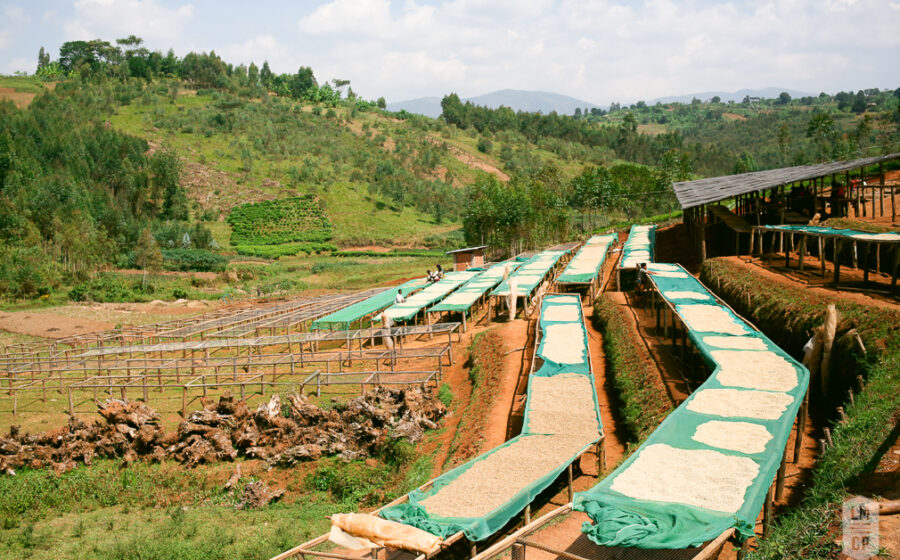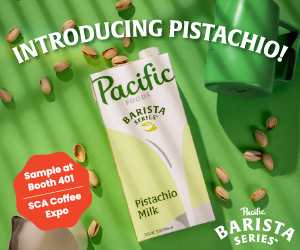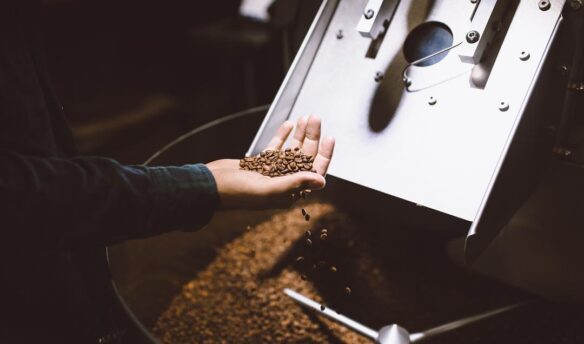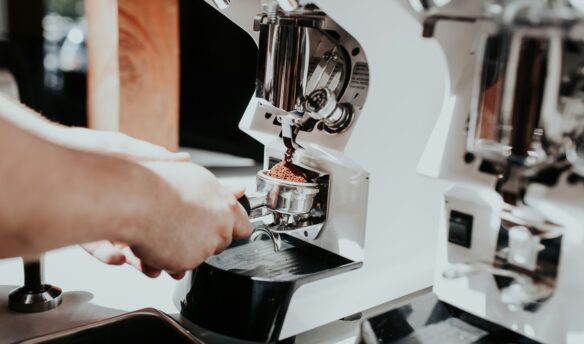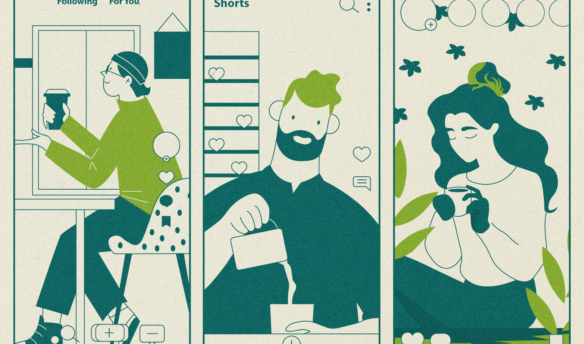[W]hen Ben Carlson tells me about the situation for coffee farmers in the conflict-beset country of Burundi, he doesn’t begin by talking about the political tumult or the tank fire. Instead, he points to the New York C-market. Commodity coffee prices are the lowest they’ve been since 2013, hovering around $1.30 per pound. If a Burundian farmer takes the commodity price, Carlson says, the farmer can’t break even. The farmer can’t even buy mulch, never mind fertilizer, and a citizen of what has again become the world’s poorest country becomes even poorer. Even with coups, counter-coups, gun battles, and an election that no one but the winner believes is legitimate, the most important factor affecting Burundi’s coffee farmers, says Carlson, is that commodity prices ensure their poverty.
Even if prices are the biggest crisis facing farmers, the conflict created more immediate problems during the recent harvest. “Essentially there is a war going on, and my neighbors . . . have to decide whether to go pick cherries or stay home and stay safe,” Carlson says. One family had to take shelter when a battle erupted next to their fields.
In July, Carlson, who with his wife, Kristy, owns coffee producer Long Miles Coffee, was cupping coffees late at night when he was called and told that someone had thrown a grenade into their washing station in Bukeye. No one was hurt, but the storeroom was damaged. He doesn’t know why the attack happened or who would have done it, but grenades are cheap in Burundi and they are used often.
While the conflict didn’t stop the harvest, it has halted the ability of exporters to get coffee out of the country. A coffee needs to gather twenty-nine signatures from nine offices in the capital before the Ministry of Agriculture will let it go. That’s a bureaucratic steeplechase in peacetime. Now, gathering those signatures can be made impossible by roadblocks and fighting. The offices may be empty. “We have beautiful coffees, eighty-five-plus coffees and they’re just sitting there. You can’t get it out because the minister of agriculture is afraid to go to his office,” Carlson says. “There is nothing you can do. There is literally nothing you can do.”
Since its independence in the sixties, and of course throughout its colonial period, Burundi has experienced tremors of violence and outright war. The worst and longest was the civil war from 1993 to 2005, which killed around 300,000 people. The war ended when Pierre Nkurunziza was elected president, and the current violence began when he declared he would—and the Constitutional Court allowed him to—run for an unconstitutional third term. A military coup was countered, violence erupted, elections were held but boycotted by opposition parties, Nkurunziza won, and the violence has not abated. The economy, already meager, collapsed. Wars and lethal political fights rarely care if imagined gains will never exceed the conflict’s real destruction of bodies and economies.
“We’re living in an age of we don’t know what’s next,” says Carlson, referring not to this year’s conflict but to a generation of violence. “How do you tell farmers—how do you tell your neighbors—to mulch so that they might have a better crop when they don’t know if they will live through the year?”
“A small roaster in Middle America can make a real impact in East Africa right now.”
When Carlson says things like this and when he describes the political situation, there’s no desperation in his tone, and he’s as quick to laugh and joke as most any other time. It’s a characteristic common to people living close to crises, part of our ability to create normality even in dangerous times. And it’s not a false sense of normality, either. The planned Cup of Excellence competition went forward last month, and the photos Carlson posted to social media show him, his team, and other growers beaming at their results (Long Miles’ coffees took third and eighth). They’ve created something great during the hardest growing conditions in a decade.
While Carlson has remained in Burundi, his wife and two boys are in South Africa until October, but then they’ll return. “It’s harder to produce coffee than I ever thought,” he says, “and it’s more personal than I ever thought.” Carlson says, several times during our Skype call, that Burundi has the best coffee in East Africa, though washing stations don’t often let them shine. Like Yemen, Burundi’s conflicts and resultant poverty have diminished its coffee’s quality, to some extent, but even more they’ve diminished green buyers’ perceptions. It’s difficult for a little-known coffee country to grab attention and create sales, and it’s even harder when the little that is known is negative. But, Carlson says, that dire state allows coffee dollars to do enormous good.
“A small roaster in Middle America can make a real impact in East Africa right now,” he says. “It’s not about Long Miles Coffee. If you buy Burundi coffee you can make a difference.”
—Cory Eldridge is Fresh Cup’s editor.


